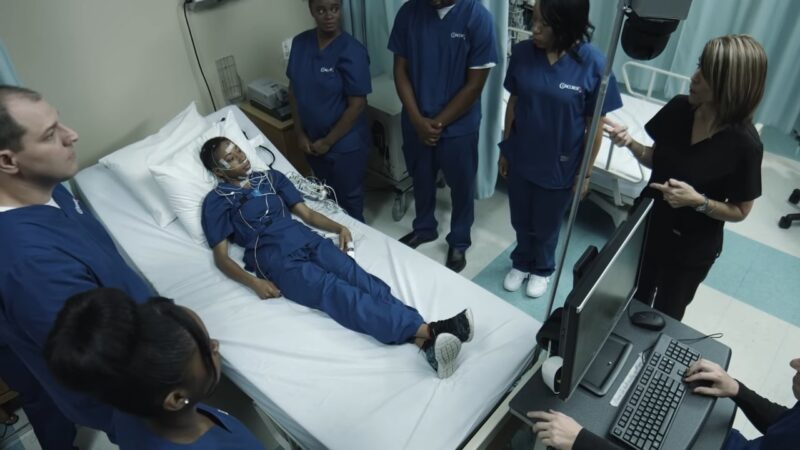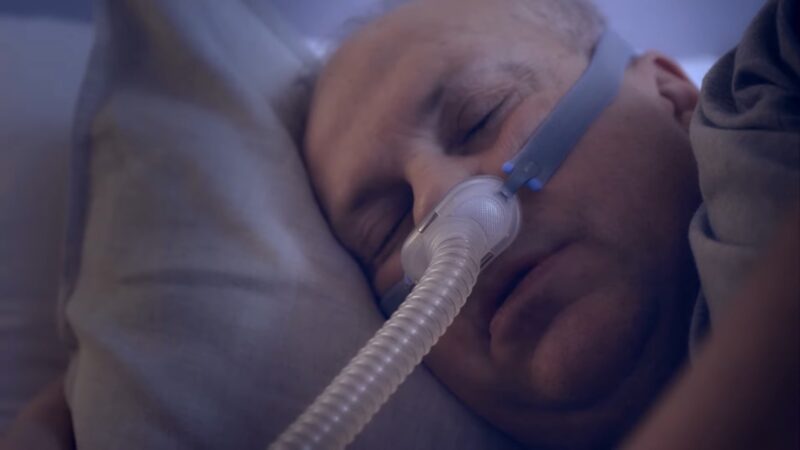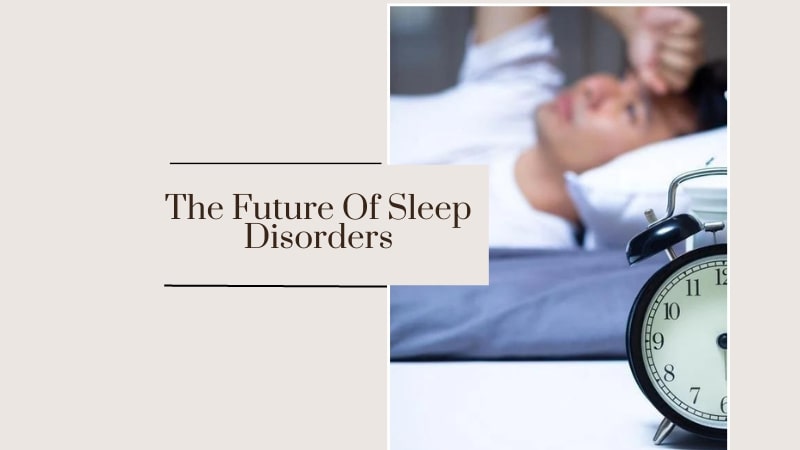Sleep studies, clinically known as polysomnography, are imperative in understanding the mysteries and diagnosing disorders. Sleep, a vital indicator of overall health and well-being, is crucial for mental health, immune function, and physical health. The quality of one’s directly affects the quality of their waking life.
Initially, sleep studies were limited to observing sleeping patterns and behaviors. It was not until the 20th century that advancements like EEGs allowed for more in-depth analysis.
Over the years, sleep studies have evolved from rudimentary observations to complex polysomnography that records brain waves, oxygen levels in the blood, heart rate, and breathing, as well as eye and leg movements during the study.
Sleep Study Technology

Traditional study methods primarily relied on in-laboratory settings where patients were observed overnight. Multiple sensors and electrodes were attached to the patient to monitor various physiological parameters.
Today, the introduction of portable monitoring devices has revolutionized sleep studies. These devices can record data on movement, airflow, and breathing patterns. Furthermore, wearable gadgets and smart mattresses can track cycles and vital signs, providing valuable data for analysis.
The Future of Sleep Disorders and Treatments
Sleep disorders, including insomnia, sleep apnea, restless leg syndrome, and narcolepsy, affect a large percentage of the population. These disorders can severely impact a person’s health and quality of life.
Current treatments range from medication and lifestyle changes to more specialized treatments such as CPAP for sleep apnea. However, these treatments may not be effective for everyone and often have side effects.
Artificial Intelligence

Artificial Intelligence (AI) is transforming healthcare with its ability to process vast amounts of data and offer insights that can be used for better diagnoses and personalized treatment plans.
In studies, AI is being used for the automated analysis of polysomnography data and for predicting sleep stages. AI algorithms can detect patterns in sleep that might not be evident through manual analysis.
Home Studies: The Future is Here
Traditional studies, although highly effective, can be inconvenient and uncomfortable for patients. The lab environment can be unfamiliar and intimidating, potentially affecting the quality of sleep.
Home sleep studies have become increasingly popular as they allow for the evaluation of disorders in a more comfortable setting. Portable devices monitor various physiological parameters during.
Personalized Studies and Therapies

Personalized medicine involves tailoring medical treatment to the individual characteristics, needs, and preferences of a patient. This approach can be particularly effective in managing chronic disorders, including sleep disorders.
In the context of studies, personalized medicine might involve using genetic information to understand an individual’s disorder, thereby customizing treatment.
Studies in Children
Studying patterns in children is vital as sleep is crucial for their development. Disorders in children can lead to behavioral issues, learning disabilities, and health problems.
Current methods include overnight polysomnography, similar to adult studies. However, specialized pediatric studies consider factors such as age, growth, and development.
The Role of Genomics

Genomics is the study of the entirety of an organism’s genes, called the genome. With advances in technology, it has become increasingly feasible to use genomic information in clinical practice.
Research suggests that there are numerous genes involved in sleep regulation and that genetic factors play a role in many sleep disorders.
Sleep Studies in the Age of Digital Health
Digital health is transforming healthcare with its ability to provide continuous monitoring and generate large volumes of health data. This has had a significant impact on studies.
Wearable technology and mobile health apps are now being used to collect data on sleep duration, quality, and patterns. This data can help identify trends and potential disorders.
The Intersection of Sleep Studies and Mental Health
Both are closely connected. Disorders often coexist with mental health disorders such as depression, anxiety, and schizophrenia.
Studies can provide valuable insights into mental health conditions. They can identify the presence of disorders that may be contributing to mental health issues, leading to more targeted and effective treatment.
The future of studies is promising, with developments in technology and personalized medicine leading the way. By integrating these advancements, we can look forward to a future where disorders are better understood, diagnosed, and treated, resulting in improved quality of life for millions of people.
The future of sleep studies promises significant advancements, driven by technology and a better understanding of the biological mechanisms that govern sleep. Miniaturized, wireless devices are expected to improve home-based sleep studies, while advancements in AI and machine learning algorithms are predicted to offer more sophisticated analyses of patterns.
Looking ahead, we may see the development of non-contact sleep monitoring technologies such as radio-frequency sensors that can monitor vital signs and movements remotely. Advances in neuroimaging could also offer deeper insights into the brain during sleep.
FAQ
What is a sleep study and why is it important?
A sleep study, or polysomnography, is a diagnostic tool used to investigate disorders. It involves monitoring and recording various physiological parameters while a person sleeps, including brain waves, blood oxygen levels, heart rate, and eye and leg movements.
The importance of sleep studies lies in their ability to help diagnose disorders such as apnea, insomnia, and narcolepsy, which can significantly impact an individual’s overall health and well-being.
What are the recent advancements in sleep study technology?
Recently, study technology has seen considerable advancements, particularly with the advent of portable monitoring devices and wearable technology. These devices can record movement, airflow, and breathing patterns during sleep. Additionally, smart mattresses and sleep apps can track cycles and vital signs, thereby providing comprehensive data for analysis.
What is the future outlook?
The future of studies looks promising with the advancements in technology and the rise of personalized medicine. Developments such as AI, wearable tech, and home-based sleep studies are making diagnostics more accessible and comprehensive. The increased use of genomics is paving the way for more personalized studies, leading to improved understanding, diagnosis, and treatment of disorders.
What are home sleep studies, and how do they compare to traditional?
Home studies involve the use of portable devices that monitor physiological parameters during sleep in the comfort of a person’s home. They have become increasingly popular due to the convenience and comfort they offer compared to traditional studies performed in a lab.
However, while home studies can be effective for diagnosing certai disorders, they may not detect all types of disorders. Also, the accuracy of home studies is typically lower than in-lab studies.
How can personalized medicine be applied?
Personalized medicine involves tailoring medical treatment to the individual characteristics, needs, and preferences of a patient. In the context of studies, this might involve using genetic information to understand an individual’s specific sleep disorder and accordingly customizing the treatment. The use of genomics can potentially identify the genetic basis of a person’s disorder, enabling more accurate diagnoses and effective, individualized treatments.
Conclusion
As technology advances, so will the future of sleep studies. The rise of AI, the proliferation of wearable tech, and the emergence of home-based studies are making diagnostics more accessible and comprehensive. This evolution will enable medical professionals to better understand, diagnose, and treat disorders.
Emerging treatments for sleep disorders are taking a more holistic and personalized approach. These include targeted behavioral interventions, personalized drug therapies based on genetic information, and novel technologies such as neurostimulation.
In the future, we can expect treatments to become even more personalized as we gain a better understanding of the genetic and molecular basis of disorders. We may also see more integration between different healthcare disciplines, leading to more holistic treatment strategies for disorders.

